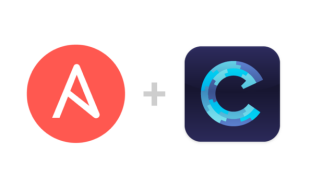Mace Dynamics put together a fantastic overview of Google's Content Quality Score, which is a major indicator for how your website pages rank in search results. Google's ranking algorithm is a well-kept secret, but from what we know the Content Quality Score seems to be a newer version of Google's retired PageRank metric.
Here is a common request I hear from our clients: "I want a new website that will make me rank higher in search engines."
Ranking higher in search results is an extremely complex process and a new website can help improve an organization's search engine ranking. But there are also limitations as to how much a new website can contribute to ranking improvements. This post will lay out what a website can and can't do to help SEO, based on Google's Content Quality Score.
What is the Content Quality Score?
Google's Content Quality Score is an algorithm that rates every website page on a 9 point scale from 'Lowest' to 'Highest'.
- Lowest
- Lowest+
- Low
- Low+
- Medium
- Medium+
- High
- High+
- Highest
The content quality score is related to whatever the purpose is of that webpage. A law firm's Intellectual Property page might have a 'High' quality score for searches for information about Intellectual Property, but will have a 'Lowest' quality score for searches for information about the latest iPhone.
In order to understand what determines the quality score of a page, it's important to understand how Google looks at web pages.
How Google Sees a Web Page

Google breaks down content on a webpage into three different categories: Main Content (MC), Supplementary Content (SC) and Advertisements.
1) Main Content (MC)
The Main Content of a webpage includes the headings, paragraph text, images, video, etc. that help a page achieve its purpose. If you're using a Content Management System (CMS) to update your website, MC is basically anything that you would put into the primary content field of the CMS using a WYSIWYG editor. MC is typically unique to that one page.
2) Supplemental Content (SC)
Whereas MC is unique to one page of the website, Supplemental Content is content on a webpage that is usually part of the page's design layout, like a page's header, footer and sidebar. SC typically does not directly contribute to the page's overall purpose, but generally helps with the user experience of a page.
3) Advertisements
Not surprisingly, advertisements are any areas of a website that are designated to paid ads from third parties. Advertisements will never improve a website's Content Quality Score. If the advertisements don't detract from the purpose of a page, they will not lower the website's Content Quality Score.
When is the Content Quality Score Most Important?
While the content quality score impacts the rankings of all pages, it is most important for what Google calls "Your Money or Your Life" (YMYL) pages. These are pages that give information that impact the visitor's finances or their life. In other words, pages having to do with:
- Shopping
- Financial information
- Medical information
- Legal information
If your website or specific pages on your site fall into one of those categories, it's especially important you pay attention to optimizing your website's content quality score.
Easy Ways to Avoid Penalizing Your Main Content's Quality Score
Quality content isn't going to write itself but there are things to avoid so your MC quality isn't penalized unnecessarily:
- Don't write duplicate content
- Don't write factually inaccurate content
- Don't have spelling and/or grammar mistakes
- Don't have distracting content elements, like overly large images that provide no added value
- Don't reword content from other websites
What Makes Quality Content?
There are lots of contributing factors positively impacting to your MC's quality score, but here are a few concrete positive indicators:
- The length of your content – typically, the longer the better, but Google also looks at how long visitors are staying on the page to ensure that visitors are actually reading all the content. They also look at a page's bounce rate to see if visitors are exploring other content on the site. Increasing a page's time on site metric and decreasing its bounce rate metric can improve a page's quality score.
- Reviews and testimonials – Just like establishing trust among from site visitors, they're also helpful in establishing trust from search engines. Claire looks at this in her recent post on local SEO tips for businesses.
- Author consistency – If you've written quality content previously on the web, Google is more likely to think your future content is quality. Be sure to use the same name (or nickname or Google+ profile markup) every time you write online so Google can appropriately and consistently identify you.
How A New Website Can Improve Your Content Quality Score
In order for a website to achieve the highest Content Quality Score, the website needs to have both high quality MC and high quality SC. A new site design cannot write quality MC for you, but a new website design can ensure that the supplemental content is of high quality. One of the goals of a new website design should absolutely be to ensure that your organization's website has high quality SC because without both a high quality MC and SC, the webpage's Content Quality Score will suffer and the search engine ranking will as well.
If you're looking to either update your organizations website's design or learn how to improve the quality of your website's content, you should definitely reach out to us and see how we can help.




Comments
warda farooq
you have produced another AMAZING piece. Thanks so much for all the hard work you put into these posts.I really thanks to you, I get lot of new knowledge from you.
Cathy Mayhue
Lots of SEO blogs have been shouting from the rooftops about the imminent demise of page rank. I always wondered which parameter is going to take its place, especially when there is lots of rumor going around about Google becoming strict about the quality of the content? I got my answer here and it poses a tough challenge for the link builders as lots of them have been happily recycling the existing content in the web and eliciting top dollars from their clients.Leave a comment